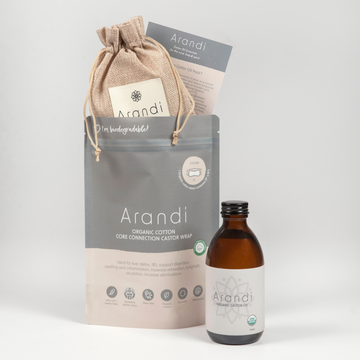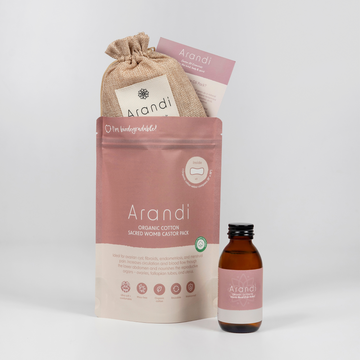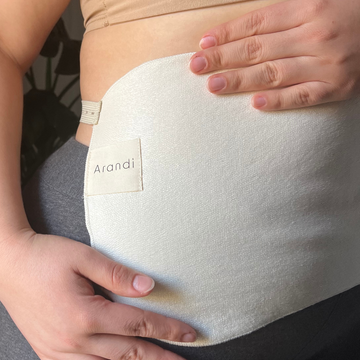You might not see or feel it, but inflammation can be gradually damaging your body.
Yes, inflammation is a natural process that helps our body treat and protect itself from threats. But, when it becomes chronic, it can lead to life-threatening diseases.
With that said, there are many things you can do to reduce and even eradicate the risk of chronic inflammation.
So, read on to find out everything you should know about inflammation.
What is Inflammation?
Inflammation is our body's natural way of healing and protecting against infection. Whenever your body is exposed to a foreign invader(such as bacteria, viruses, or other toxic chemicals) or sustain any injury, your immune system comes to the rescue in the form of an army of inflammatory cells or cytokines.
These cells initiate an inflammatory reaction to either trap foreign pathogen or start repairing the damaged tissues. This is most commonly followed by redness, swelling, bruising, or pain.
The inflammatory response is a good thing, even life-saving in many cases. For example, when you fall and scratch your knee, the inflamed swelling helps quick recovery and prevents infections.
So, short, temporary, and sporadic inflammation, also referred to as acute inflammation, works in favor of our body. The problem starts when it sticks around, and the inflammatory response continues.
The prolonged response can have a deteriorating impact on your body and brain. It can induce malfunction and the endocrine and neurological systems, leading to chronic inflammation.
7 Signs You Might Have Chronic Inflammation
Chronic inflammation occurs when your body's inflammation response stays on. Think of it like a small campfire you flamed to get warm that winds up burning 1,000 acres of the area— it's simply excessive.

Fortunately, there are various apparent signs that can help your spot potential chronic inflammation, including:
Chronic FatigueChronic fatigue can be a side effect of chronic inflammation and lack of sleep, both of which can trigger an inflammatory response in your body.
Lower Back Pain
Spine-damaging chronic inflammation is a common feature of diseases like non-radiographic axial spondyloarthritis (nr-AxSpA) and ankylosing spondylitis (AS).
Both can result in neck and hip discomfort. Additionally, they can make the lower back painful and stiff, particularly in the morning.
Skin Damage
The immune system causes inflammation that assaults skin cells, leading to the development of inflammatory skin disorders, including psoriasis and psoriatic arthritis.
However, even diseases like rheumatoid arthritis (RA), which often do not manifest as skin issues, can result in inflammation that damages the skin.
Obesity
Numerous pieces of data show that inflammation directly contributes to both obesity and diabetes. Your cells and tissues can become inflamed due to a diet heavy in refined carbs, added sugars, vegetable oils, a lack of exercise, and chronic stress.
Joint Pain
You probably have chronic, deep-seated inflammation if you experience persistent, chronic back pain or knee discomfort.
Balance Issues
Diseases that induce inflammation can also trigger the body to overreact, attacking nerve cells. When that occurs, nerve transmissions are hampered, causing a person to feel lightheaded, unbalanced, or have trouble walking.
Blood Clotting Problems
Hypercoagulation, a disorder that causes the blood to clot excessively, can develop in people who suffer from chronic inflammation as a result of an accident, trauma, or inflammatory illness.
How to Diagnose Chronic Inflammation?
Inflammation cannot be accurately diagnosed on its own. But some blood tests, such as those that focus on C-reactive protein (CRP), which denotes infections or inflammation throughout the body (such as the joints), and high-sensitivity C-reactive protein, which indicates inflammation of the heart, are an excellent place to start.

Sadly, many people don't receive a diagnosis for chronic inflammation until they are already suffering from another illness. So, do consult your doctor if you are displaying any of the above-mentioned signs of persistent inflammation.
And once inflammation is confirmed, there are numerous ways to naturally heal the problem. Let's discuss some of them next.
Natural Ways to Heal Inflammation
Chronic inflammation is a serious medical condition and cannot be completely treated without consulting the doctor. But acute inflammation doesn't usually require medical treatment.
And you can control – even reverse – inflammation and its side effects by adopting a healthy anti-inflammatory diet and making minor tweaks to your daily routine.
So, here are Arandis' six golden tips for healing inflammation in your body naturally:
Adopt Anti-Inflammatory Diet
For general health, your dietary choices are just as crucial as any supplements and drugs to cure or reduce inflammation. For example, adding fresh fruits and vegetables into your diet and cutting back on processed sugar can make a huge difference.
So, increase the intake of fruits, vegetables, and omega-3-rich meals in your diet. Moreover, grapes, blueberries, celery, garlic, tea, olive oil, and spices, including ginger, turmeric, and rosemary, are excellent anti-inflammatory diet options.
An ideal illustration of an anti-inflammatory diet is the Mediterranean diet. This is because it emphasizes on whole grains, fruits, vegetables, fish, and other nutritious foods while restricting bad fats like red meat, butter, egg yolks, processed and refined sugars, and carbohydrates.
Keep Your Body Hydrated
Water is often at the top of the list of suggestions for a healthy lifestyle, and for good reasons: It helps to decrease inflammation and flush away leftover toxins. In addition, a constant flow of water maintains your body's functions properly.
But you don't have to worry too much about purchasing enhanced fluids because consuming entire meals will provide you with ample amounts of minerals, electrolytes, and antioxidants.
So, just make sure to consume 1 to 3 liters of clean water every day!
30-Minutes Exercise a Day
Exercise is another lifestyle change that can dramatically reduce acute inflammation in your body. For individuals with inflammation issues, doctors advise them to exercise 30 minutes a day, five days a week.
Any type of exercise will do; the key is to move your body. A fantastic objective is to combine strength and aerobic training. You can perform both at once or on different days.
Castor Oil: The Holy Grail
Castor oil is made up of an incredibly beneficial compound known as Ricinoleic acid, which has extraordinary anti-inflammatory properties. It is also a great option for patients with inflammation caused by arthritic pain or sports injuries.
So, the next time your joints start to forecast rainy weather, go for some castor oil to treat the acute inflammation and even relief some pain.

A Word of Caution From Arandi
Chronic Inflammation can significantly increase the risk of severe medical disorders. Therefore, make sure to talk to your healthcare practitioner about having bloodwork to identify the cause of any kind of inflammation on your body, whether they are common or atypical.
The good news is: chronic inflammation can be controlled with medications, dietary supplements, and lifestyle changes. So, take steps to manage stress and abstain from excessive alcohol and smoking, and lead and healthy and happy life!
Read Next:












